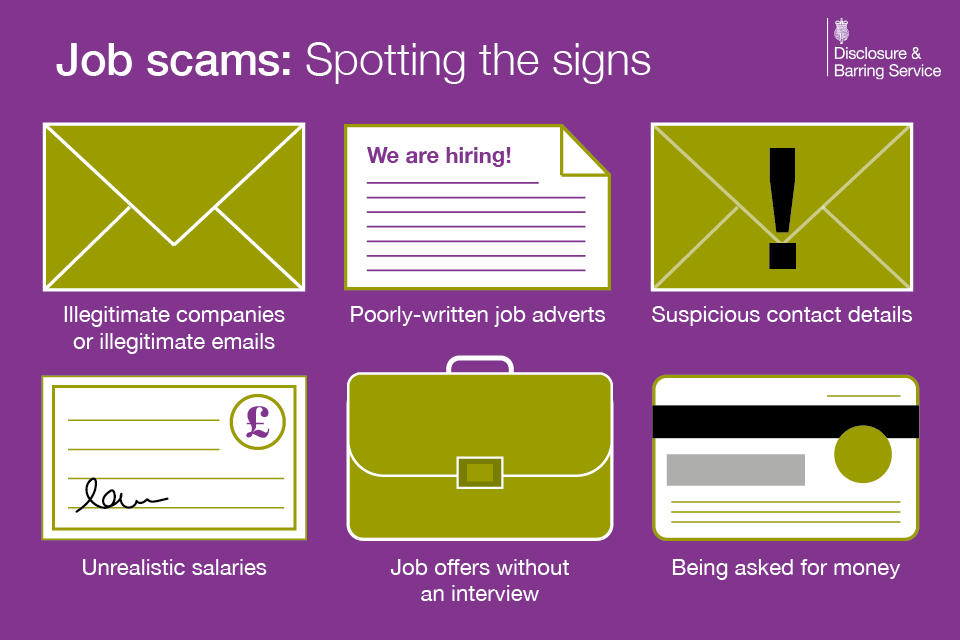The Impact of Job Scams
As part of their latest campaign to combat job scams, the DBS has been working with JobsAware and Cifas to understand the impact of scams.
Job scam warning signs
Throughout 2020, seasons job scams increased by 88% compared with 2019 – and the figures are further predicted to increase this year. With these alarming figures, it’s crucial to remain cautious and to familiarise yourself with the signals of a scam or fraudulent job advert.
The first two stages of the DBS’s campaign raised awareness of these signals: badly-written job adverts, false contact details, being asked for money, among others.

Identity fraud
The DBS, alongside continuing to point out the signs of job scams, is now also looking at how scammers use the information they collect as part of a scheme – which includes identity fraud.
Identity fraud is overwhelmingly committed online, with 85% of cases taking place through online channels. In the first nine months of 2021, Cifas members recorded 158,000 instances of identity fraud. To put those numbers into perspective, that’s one person every 2.5 minutes, and an increase of 17% over 2020.
CEO of Cifas Mike Haley gave this statement:
The pandemic created numerous opportunities for criminals to steal victims’ personal and financial details, including through fake online job adverts. Personal information is extremely valuable to criminals as they can use a victim’s details to impersonate them and apply for products and services such as bank accounts, loans, and credit cards.
Always take a moment to stop and think before handing over your personal or financial information, or when sharing documents such as a passport, driving licence, or bank statement.
DBS Case Studies and Further Information
The DBS has provided case studies, further information and how you can receive help if you think you have fallen victim to a job scam.
Case study one
Finchley applied for a job that was posted online, and was asked to pay for a DBS check as part of the process. Upon paying for the DBS check, communication stopped, and Finchley realised he had been the victim of a scam.
Case study two
Naomi came across a job on an online job board, and as part of the application, provided her name, address, and a variety of scanned documents. She was then asked for money, and when she refused, communication stopped.
The full case studies can be found here: Job scams – case studies (PDF, 89.1KB, 2 pages)
What to do if you think you have fallen victim to a job scam
If you suspect you have been targeted, or have been the victim of a job scam, there are a number of ways to report this, including via the JobsAware portal. They will investigate and take further action if necessary.
If you have parted with money as part of a suspected job scam, please contact the police and they will take the matter further.
Further information can also be found on Cifas’ website.
Who are JobsAware and Cifas?
JobsAware is a not-for-profit organisation that informs people of how to avoid and report job scams and other unfair working practices. More information about their work can be found on the JobsAware website.
Cifas is a not-for-profit fraud prevention membership organisation that manages a database of fraudulent conduct. Members of Cifas include organisations across all sectors, who share their data to reduce instances of fraud and financial crime. More information can be found on the Cifas website.
Further information
For more details on the campaign, please use the details below.
- Dr Suzanne Smith, DBS: [email protected]
- Keith Rosser, JobsAware: [email protected]
- Cifas Press and PR team: [email protected]

